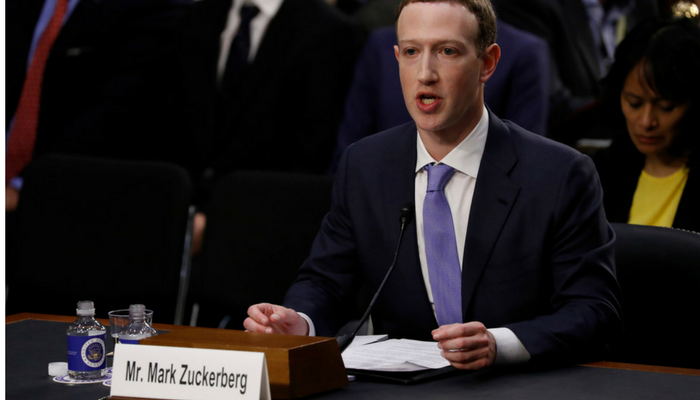
Zuckerberg: Facebook Doesn’t Tap Users’ Microphones
- Mark Zuckerberg is being questioned about Facebook's operations and privacy policies before the Senate.
- The Facebook CEO refused any accusations that the company taps users' microphones.
- Zuckerberg then further explained the obvious that they collect audio as a part of recording video, which is a functionality they provide to their users.
Today, the urban legend that Facebook targets ads at you by snooping around with your phone’s microphone, just came under congressional records. It seems Senator Gary Peters (D-MI) couldn’t help himself, or simply wanted to put an end to this matter. The senator had heard about this spying theory from many people, including his staffers. And so, he finally broke the question during Zuckerberg’s Senate testimony - “does Facebook use audio obtained from mobile devices?”
For long there has been a conspiracy theory running around that Facebook, along with some of their associated apps like Messenger and Instagram secretly eavesdrops through the phone's microphone. The social media company has always been notorious for collecting user data for ad targeting purposes. Coupling this with previous instances of privacy violation - recall the Edward Snowden incident - and the theory does seem viable.
Image Courtesy of Engadget
The full question from Senator Peters’ side was, “Yes or no, does Facebook use audio obtained from mobile devices to enrich personal information about users?” Now, Facebook has been facing such questions since 2016, and every time the social media giant has denied such claims. This time also, Zuckerberg responds with an unwavering “No.” The Facebook CEO then went on to expand that their apps do record audio as a part of the video, but besides that, their apps don’t have access to the users’ microphone.
In response to Zuckerberg’s statement, Senator Peters remarked, “hopefully that will dispel a lot of what I’ve been hearing,” and then moved on with his other questions.
Here is Zuckerberg’s complete statement regarding the matter: “Senator, let me get clear on this, you’re talking about this conspiracy theory that gets passed around that we listen to what’s going on on your microphone and use that for ads. To be clear, we do allow people to take videos on their devices and share those, and videos have audio, so we do while you’re taking a video, record that and use that to make the services better by making sure your videos have audio, but I think that is pretty clear. But I just wanted to make sure I was exhaustive there.”







